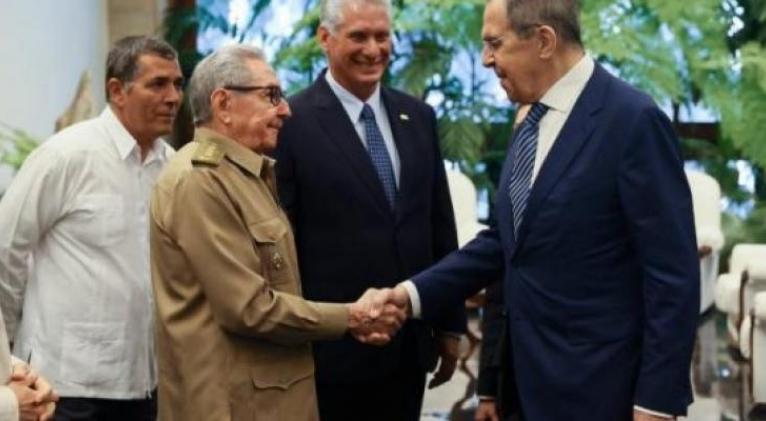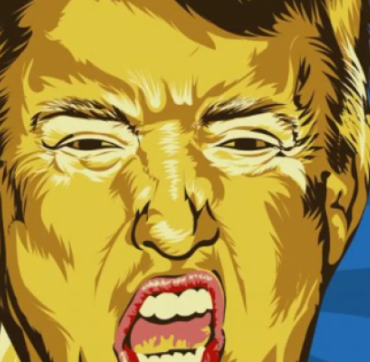Moscow and Havana Don't Believe in Tears
especiales

The very recent visit to Cuba by the Minister of Foreign Affairs of the Russian Federation, Serguei Lavrov, made to the front-page for a few hours, both in the media and on social networks. Speculations were plenty as always. Also from very “stern podiums” shower scolding, tantrums, and the arrogance of those who do not want to understand the reality of these times.
The foreign minister of the Eurasian country arrived in Havana on the evening of Wednesday, April 19th, to carry out an wide-ranging program on Cuban soil the following day. It was the last leg of his Latin American tour, which also took him to Brazil, Venezuela and Nicaragua.
The quick trip of less than a week of "one of the most influential men in international politics", like President Nicolás Maduro described him after his meeting with Lavrov in Caracas, caused great concern, especially in the so-called "western" countries”.
The tour of the head of Russian diplomacy to Cuba, for the eighth time since he was appointed in 2004, had the additional component of "coinciding" with the celebration in Cuba of the 62nd anniversary of what’s considered the first great defeat of Yankee imperialism in Latin America, in the sands of Playa Girón.
That same day, April 19th, the National Assembly of People's Power (Parliament) ratified President Miguel Díaz-Canel Bermúdez for a new five-year period to govern the country.
A few hours later, the handshake between Lavrov and the historic leader of the Cuban Revolution, Army General Raúl Castro Ruz, who accompanied President Díaz-Canel to the meeting with Lavrov, sent the world a clear message of continuity in the close relations between both countries.
It's well known that for years the Commander of the second eastern front in Sierra Maestra, and later Minister of the Revolutionary Armed Forces of Cuba, kept very close relations of friendship and trust with the Soviet military. The repeated visits of Raúl Castro to Moscow, and his presence at the Baikonur cosmodrome during the takeoff of the first Cuban cosmonaut, Arnaldo Tamayo Méndez, in 1980, are proof of this.
Certain media commented with tinges of irony that "nothing was known about the content of the talks" between Castro and Lavrov. A way to sow the matrix that something dangerous was being cooked behind the scenes.
But you don't have to be skeptical. Foreign Minister Rodríguez Parrilla agreed with his Federation counterpart in describing the state of bilateral relations as excellent, and insisted that it was part of the frequent exchanges that take place between the two countries, "an image of the maturity, and historical character of our relations (…), and the high priority that Cuba grants to these ties, based on fraternity and solidarity.”
An old Russian proverb reminds us that it’s better an old friend than two new ones. It seems to be confirmed now in the moments when Russia is sanctioned and NATO intends to isolate it and surround it.
It’s not a secret that this is an effort lead by the United States, and seconded by other regressive forces, which have put away what’s already accepted as Cold War 2.0 for several years, with its variant of hybrid warfare (cyberattacks) and other projectiles from the digital age.
Nothing new for the revolutionary island, which suffered since January 1st, 1959 until today, all kinds of wars, attacks, threats and isolation attempts, coming from the powerful neighbor up North and its most violent acolytes.
The exchange of the foreign minister of the Eurasian country with the highest Cuban authorities confirmed what the island's president expressed during his meeting with President Vladimir Putin last November at the Kremlin, when Díaz-Canel described the North American empire as the common enemy.
Lavrov's visit was used – there’s no doubt about that - to exchange experiences on how to confront and act jointly with the aim of safeguarding Russian and Cuban sovereignty.
Since the beginning of the Special Military Operation in Ukraine, on February 24th last year, the Cuban government has always advocated for a negotiated solution to the war crisis. But, as Russia-phobic actions have spread, and reactions have intensified, added to the political and military vendetta against the great nuclear power, Cuba has increasingly denounced these dangerous tricks, which threaten a final outcome for the human species.
The siege of the Russian Federation includes silencing at all costs its recurring calls to return to the negotiating table, and enforcing the Minsk agreements of 2014. The same MO that has been used for more than six decades against the Caribbean country, to prevent its voice from being heard and taken into account by international public opinion.
when Minister Lavrov first started his Latin American tour on April 17th in Brasilia: "We’re interested in putting an end to the conflict in Ukraine as soon as possible. We have already explained in detail on several occasions the reasons for what’s happening and the objectives that we are pursuing in this regard (...) "Our Western colleagues are waging a tough fight to keep their dominant position in international affairs (...) and this has given momentum to the current situation of relations between Russia and NATO, the EU, and even about the process in Ukraine”.
Already in Havana, the diplomat thanked the "full understanding" of the Cuban authorities regarding the conflict. He also said: "We appreciate that (...) they have clearly stated their position and expressed their full understanding in their assessments of the reasons that led to the current situation."
For his part, Foreign Minister Rodríguez Parrilla emphasized to the press: "We will continue to advocate for a diplomatic, serious, constructive, and realistic solution to the current crisis in Europe through peaceful means."
It’s clear that during the visit – and this was confirmed over and over by both parties – issues of common interest like energy, commercial and economic cooperation, tourism were reviewed; exchanges in education and culture, among others.
However, some journalists did not want to miss the chance to enlighten their audiences about the military cooperation between the two countries, some to appease any ill-intentioned conjecture; and those from the other side with the well-known objective of exacerbating the spirits and animosity of the enemies of Havana and Moscow.
Lavrov was laconic but very precise about it: "The (military) agreements reached are convenient for both parties" (...) there’s contact between the military and law enforcement agencies, which help to guarantee security."
And once again the cries came from Miami, and the nervous gulps from Washington, as well as in certain renowned European capitals.
Although it was expected, the arrogance of the North American embassy in Cuba was equally unfortunate, which on the evening of the visit once again "decorated" itself with yellow and blue lighting of the Ukrainian flag.
One can help , but remember that caricature-sign that for years stood outside the not-so-diplomatic North American headquarters in Havana, where a militiaman was telling Uncle Sam from his island with clapping palms: GENTLEMEN IMPERIALISTS WE HAVE ABSOLUTELY NONE FEAR OF YOU!
Of course we are not. As there has never been, nor will there be; neither on the shores of the Caribbean, nor on the banks of the majestic Moskva River.
Translated by Amilkal Labañino / CubaSí Translation Staff














Add new comment